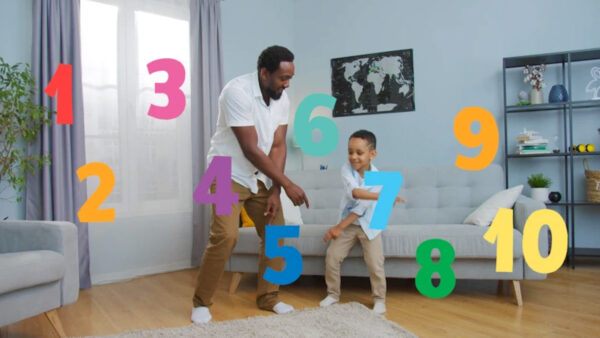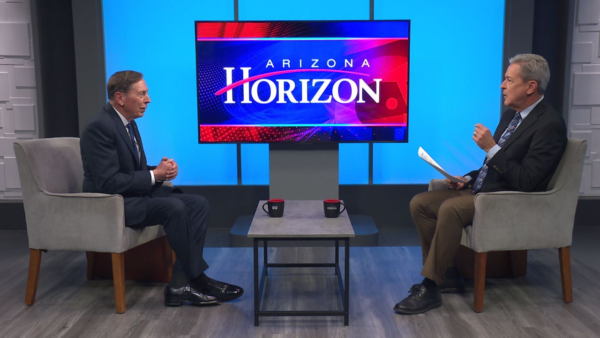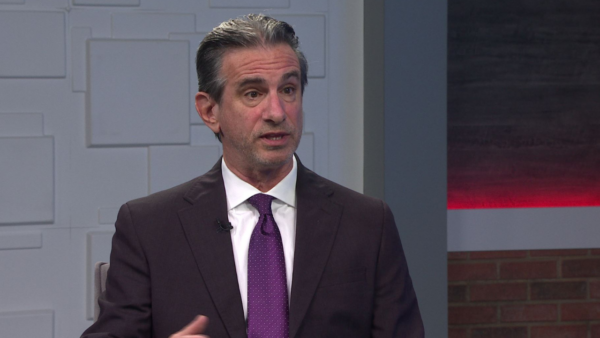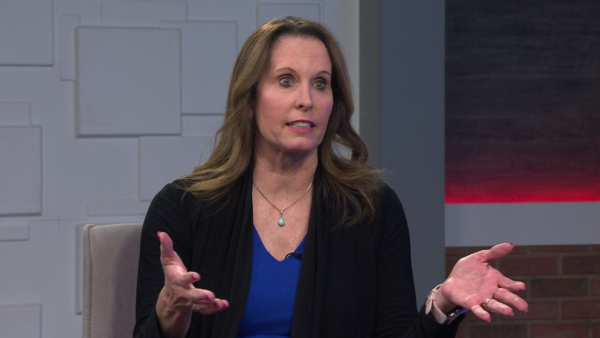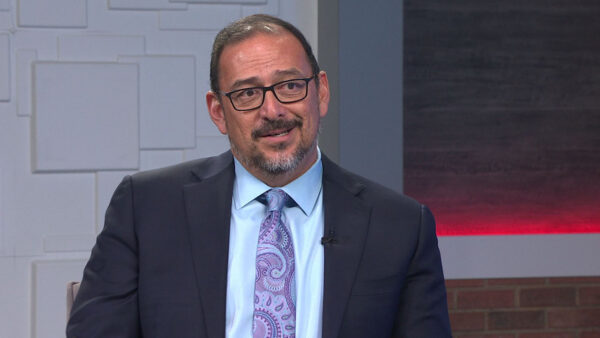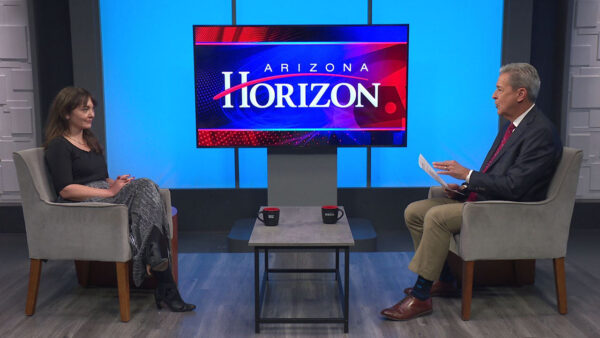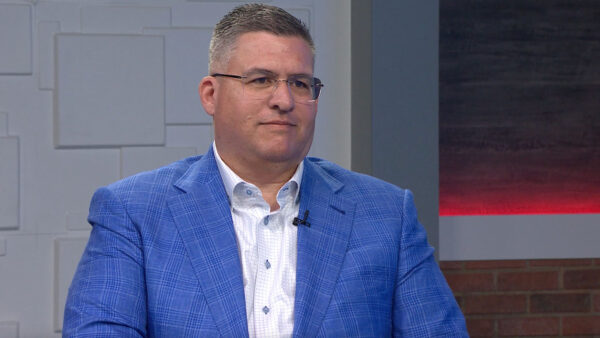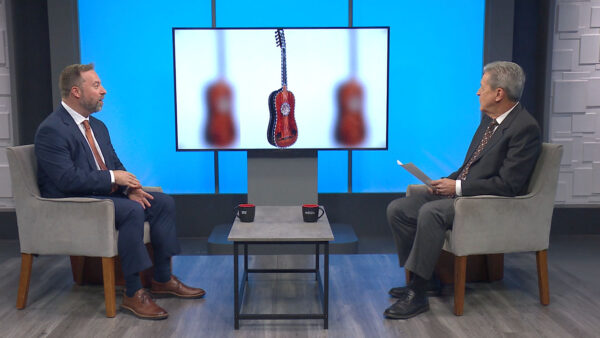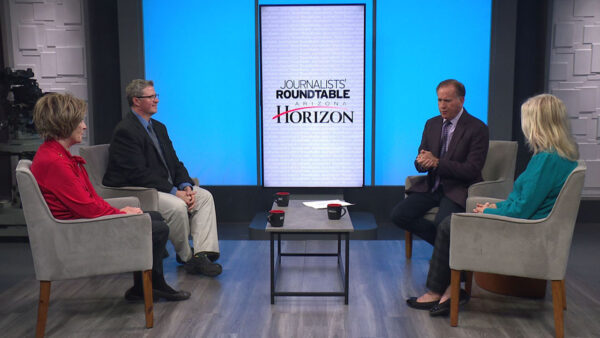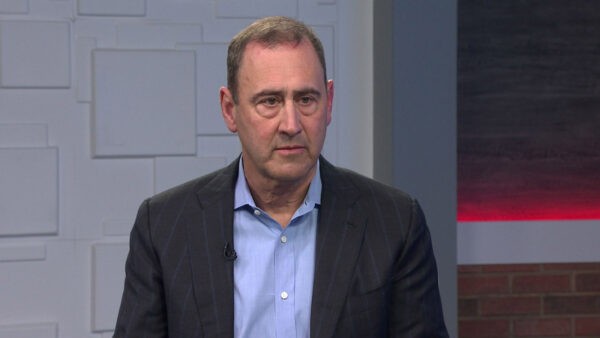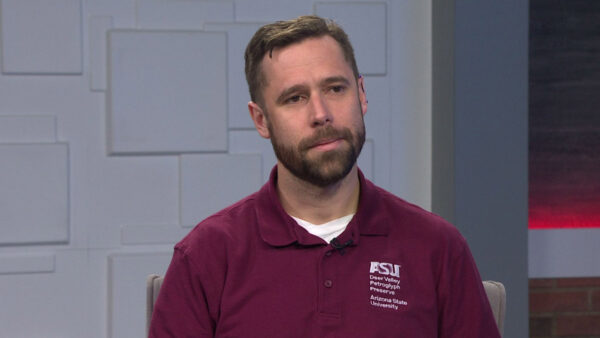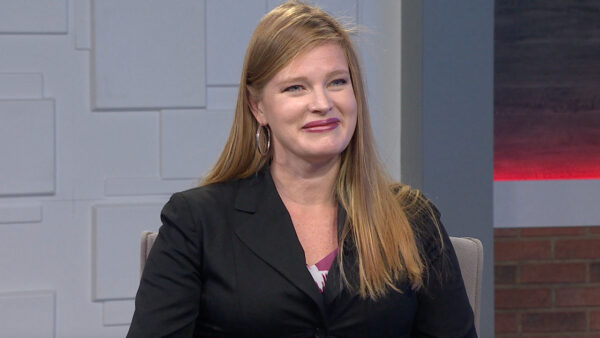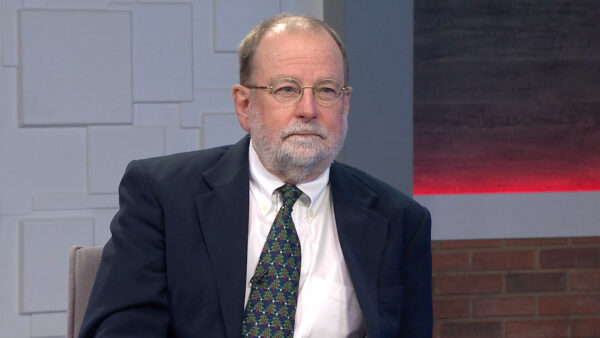Young patient thrives after heart transplant at Banner-University Medical Center
July 6, 2023
Andrew Hasquet is a 26-year-old heart transplant recipient now thriving after a life-threatening scare led him to receive the transplant at Banner-University Medical Center Phoenix. Hasquet joined us on Arizona Horizon to talk about the procedure. We also welcomed Dr. Francisco Arabia, Physician Executive at Banner-University Medical Center Phoenix.
Hasquet said he sometimes forgets he’s been living with someone else’s heart for the past few years. The Peoria resident said even after experiencing a freak heart event in 2020 and undergoing a transplant, he now feels completely back to normal, evidenced by his ability to play right center field in a softball league two nights a week.
A life-threatening scare
Before his heart transplant, Hasquet had been living a normal college life. He was in his junior year at Northern Arizona University (NAU) in Flagstaff, pursuing a degree in electrical engineering. That all changed for him one day in January 2020, when he noticed something felt “off” while he was doing some pre-workout stretches at the gym.
After feeling a lot of pressure on his sternum, he still tried to exercise before heading home. The pain went away for about an hour then it came back, ten times worse, he recalled. His roommate took him to a nearby hospital, and he woke up to a group of medical staff performing CPR on him.
Hasquet had suffered a spontaneous dissection of his coronary artery, a rare event for a healthy person with no genetic disposition. After receiving a CT scan, he was flown to Banner-University Medical Center Phoenix, where he stayed for almost a month and was told he might need a transplant. After Hasquet was discharged, a week passed before he felt worse again, to the point where he could barely walk or eat without needing to vomit. When he went back for a checkup, an MRI showed about 70% of his heart muscle had died.
The heart transplant procedure
Hasquet was then re-admitted to the hospital and put on the heart transplant wait list. Luckily, a heart was available for him about a week later, and he receive his new heart on April 16, 2020. Five hours after the transplant, Hasquet was standing again and was able to return home to his family in a little under two weeks.
“It was definitely a humbling experience,” Hasquet said. “After going through this, I appreciate people in my life more and the fact that I get to live every day and be healthy.”
Hasquet’s case was the fourth heart transplant performed by the highly specialized teams with Banner-University Medical Center Phoenix’s Advanced Heart Failure Program, which has now completed a total of 84 transplants since its inception in 2020. Dr. Arabia said Hasquet’s story emphasizes the need for this kind of care in Phoenix.
“While Mr. Hasquet’s case was a rare event for a healthy person at his age, it is possible for young people to still experience various kinds of heart failure,” Dr. Arabia said. “As we continue to see more people in our communities suffering from this, our team of experts have a wide spectrum of tools to help, whether it be a heart transplant, total artificial heart or other treatment options.”


